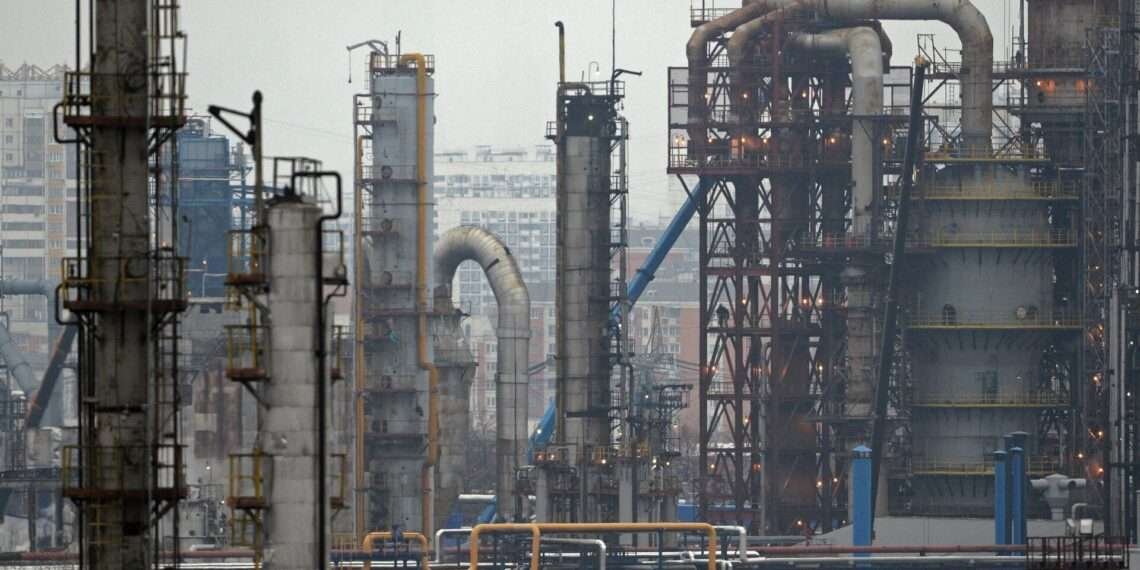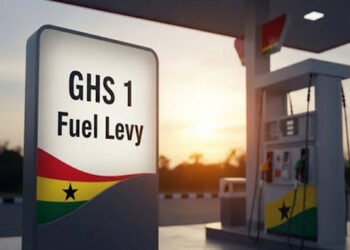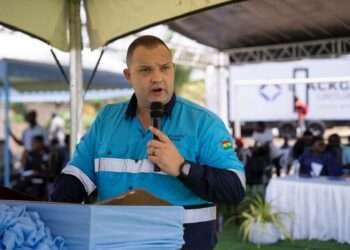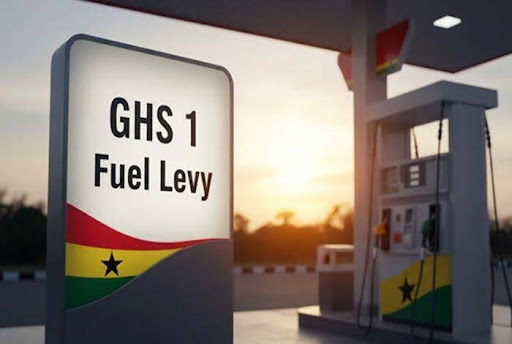The Republican Bloc for the Defence of the Constitution (BRDC) is demanding transparency regarding Russia’s alleged donation of 30,000 tons of diesel to the Central African Republic (CAR).
The fuel, donated months ago, has not been accounted for in the national budget, raising concerns over its management. The Ministry for Foreign Affairs in a statement acknowledged receiving the donation late January 2025.
“This action is an important continuation of the Russian Federation’s consistent efforts to assist the CAR, with which we share strong ties of friendship and multifaceted cooperation, in addressing the energy crisis in the country.”
Central Africa Republic’s Ministry for Foreign Affairs
Martin Ziguélé, BRDC spokesperson, questioned why this significant contribution remains absent from state financial records. He suggests that due to storage limitations, the fuel might have been sold in Cameroon instead of being used domestically.
The BRDC insists that proceeds from any such sale should be recorded in the State’s financial operations and used to mitigate cash flow shortages. Ziguélé pointed out that the CAR government continues to rely on high-interest loans for its operations, making transparency in financial matters even more critical.
The lack of transparency in handling Russia’s fuel donation became apparent only after President Vladimir Putin mentioned it during President Faustin-Archange Touadéra’s recent visit to Moscow.

Ziguélé, who is a member of the finance committee, stated that he has not received any official documentation about the donation.
Reports suggest that this alleged Russian donation is part of a broader geopolitical strategy. Sources indicate that the Central African government is selling Russian fuel domestically at inflated prices through a Cameroonian shell company, creating concerns about profiteering.
This situation bears similarities to a previous controversy involving 50,000 tons of Russian grain, where financial accountability was never clarified. Moscow’s announcement of such “donations” appears to be a diplomatic maneuver to obscure their commercial and strategic objectives.
Despite ongoing inquiries, the CAR government has yet to disclose details regarding the fuel’s quantity, allocation, and financial management, even though it has been in play since early 2024.
Russia’s Expanding Influence in CAR
The historical relationship between Russia and the Central African Republic has evolved significantly since diplomatic ties were established in 1960.
While relations were strained during the Soviet era, they strengthened in the late 2010s under President Touadéra, who sought Russian assistance in bolstering CAR’s military capabilities amid conflicts with rebel groups.
In 2018, Russia committed to supplying military aid, including arms and instructors linked to the controversial Wagner Group. With an estimated 2,500 Russian personnel currently active in CAR, Moscow’s military presence in the country marks its most significant engagement in Africa since the Cold War.
Beyond military cooperation, Russia has also positioned itself as a key economic partner for CAR. Bilateral trade has expanded significantly from 2022 to 2024, with Russia supplying fuel and grain while importing agricultural products.
High-level meetings between Russian and CAR officials underscore a mutual commitment to enhancing trade and investment.
However, Russia’s growing influence in CAR is not without controversy. Critics argue that its involvement in the country extends beyond economic and military cooperation to strategic resource exploitation.
Reports suggest that the fuel donation may serve dual purposes: fueling heavy machinery for Russian mining operations and generating revenue through overpriced fuel sales.
Moreover, the increasing reliance on Russia raises concerns about CAR’s sovereignty. Some analysts believe that by embedding itself deeply within CAR’s economic and military framework, Russia is effectively securing a long-term grip on the nation’s political landscape.
This development comes amid waning Western influence in parts of Africa, allowing Moscow to position itself as a dominant player in the region.
While Russia’s support is seen by some as a stabilizing force against rebel groups, others warn of potential risks.
The opaque nature of Russian deals, coupled with concerns over governance, raises the possibility of increased corruption and diminished state autonomy. If CAR continues down this path, it may find itself dependent on Russia in ways that could limit its economic and political flexibility.
READ ALSO: Della Russel Slams Greater Accra Minister over Engagement with Zoomlion




















